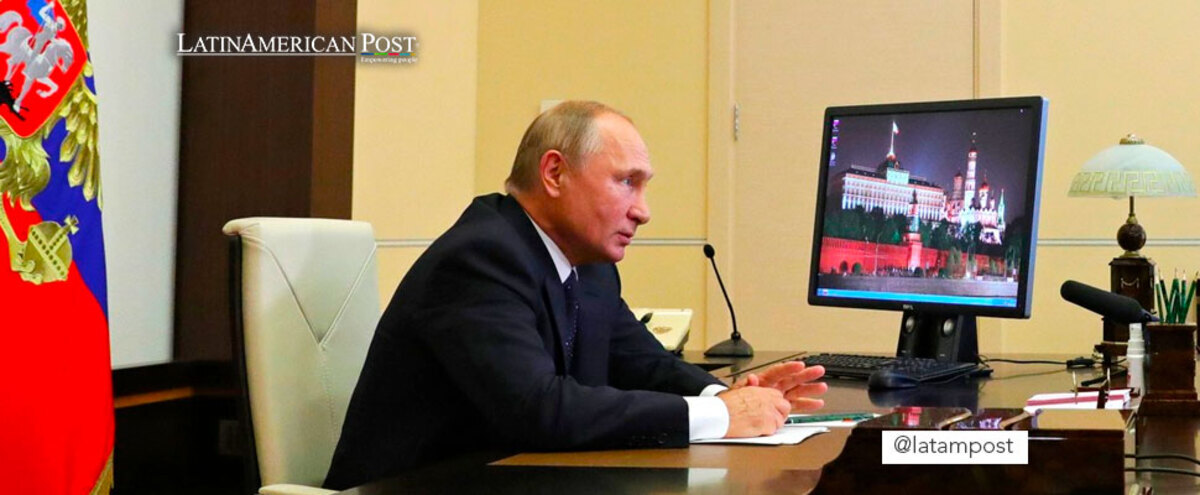Russia Announces That it is Withdrawing From START III. Is it Time to Worry?
Russian President Vladimir Putin announced last Tuesday the superpower's withdrawal from the START III pact. What does it mean?.

Photo: kremlin.ru
LatinAmerican Post | Santiago Gómez Hernández
Escucha este artículo
Leer en español: Rusia anuncia que se retira del START III. ¿Es momento de preocuparse?
Russia's president, Vladimir Putin, shocked the West last Tuesday by announcing his country's withdrawal from the START III nuclear pact. This announcement comes almost a year after the start of Russia's "special operation" in Ukraine and at one of the most critical moments on the battlefield, where both sides are fighting meter by a meter over the towns of eastern Ukraine.
What is START III?
The START III (Strategic Arms Reduction Treaty – Strategic Arms Reduction Treaty in English) was signed in 2010 between the United States and Russia as major nuclear powers in Prague. Both nations pledged to reduce their atomic arsenal by two-thirds, leaving a maximum of 1,500 nuclear warheads and 800 missile launchers.
You can also read: Viktor Orbán, Vladimir Putin's ally within the European Union
START III continues START I and START II, the first nuclear arms reduction agreements between both powers. With the signing of these treaties, the end of the cold war between the two superpowers was understood, and the end of the nuclear race.
Nuclear Countries Outside of Nuclear Pacts
Russia exits START III, but it is unknown if it will also go to the nuclear non-proliferation treaties. START III is a bilateral pact between Washington and Moscow limited to gradually reducing atomic weapons. This since these are the two nuclear mega powers. Russia is also a signatory to several treaties where it does not attack nuclear countries without atomic arsenals.
However, other non-proliferation treaties prevent restricting other countries from arming themselves with nuclear weapons. However, today Israel, Pakistan, India, North Korea, and South Sudan are the only ones that have not signed that prevented them from arming themselves atomically. Today, the majority have nuclear warheads.
A Debacle in Diplomacy that Goes Back Decades
The news is not only a concern in nuclear issues. This shows how little cooperation exists between the West and Russia. Not only for nuclear issues but to coordinate any other cooperation interest, such as cybersecurity or the fight against mafias.
Indeed, it cannot be ruled out that this announcement by Putin is a form of deception (a Bluff), but it would be risky not to take the possible scenarios of reactivating the nuclear arms race seriously. Equally, if the dialogue between NATO, the EU, and Russia remains fragmented, the risks of a conflict will be catastrophic. This is why today, countries like Poland fear increased tensions and conflict.
The Possibilities for the Future
Although the news of Russia's withdrawal from START III may suggest a restart of nuclear proliferation, it is also true that the treaties that seek to prevent an atomic conflict are due to be renewed. A feeling of peace within a nuclear context is only complete if China and France ratify their commitment or India, Pakistan, and North Korea (including South Sudan) enter the pact.
The fragile peace between India and Pakistan has always been a cause for concern. Border, ethnic and religious disputes create an atmosphere of tension that worries international society. This would imply a new severe agreement that includes new countries and recognizes the current situation of nuclear nations, not based on a post-World War II context.





